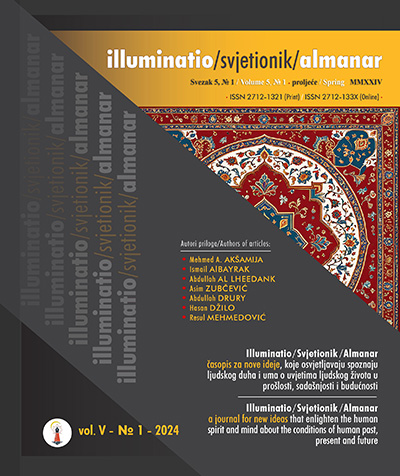Torbeški (Pomački) identitet i njegovi izazovi u Makedoniji
Torbeši / Macedonian Muslim (Pomak) Identity and their Challenges in Macedoni
Author(s): Hasan DžiloSubject(s): Cultural history, Ethnohistory, Social history, History of Islam, Contemporary Islamic Thought
Published by: Centar za dijalog - Vesatijja
Keywords: Torbeši; Pomaks; Gorani; identity; self-identification; ethnicity; religion; state; nation; Macedonia; Bulgaria;
Summary/Abstract: The aim of this discussion is to partially shed light on the challenges and problems encountered by the Torbeši (Pomak) identity in the Balkans from the creation of the nation state until today. It is an ethnic identity inhabited in Macedonia, Bulgaria, Albania, Greece and Kosovo. They speak of the Torbeši, the Pomaks and the Gorani, as three branches of one identity, the substrate of which, according to Macedonian and Bulgarian researchers, is linked to the worship of God. As it is mostly inhabited in Macedonia and Bulgaria, all researchers believe that it is a sub-Macedonian or sub-Bulgarian ethnicity, motivated by nationalist and ethnocentric prejudices that led, and still lead today, to its stratification, which has different effects on its self-identification. Its stratification is also present in the multi-party arrangement of political life in Macedonia under the influence of political parties and their national agenda due to statistical data or quotas on which the integration into state institutions depends. This is a population that is not in the preamble of the Constitution of Macedonia, although it is after Albanians and Macedonians in terms of numbers, unlike, for example, Turks, Roma, Serbs, Bosniaks and Vlachs, whose number is significantly smaller. This position greatly contributes to their declaration as Albanians, Macedonians and Turks, depending on the environment in which they live. However, one part of the last census declared itself Torbeši. Despite these Torbeši affiliations, due to political and economic reasons, they are still Torbeši in their self-awareness and in the consciousness of those with whom they equate, because they recognize them as such throughout the time they share a common living space.
Journal: Illuminatio/Svjetionik/Almanar
- Issue Year: 5/2024
- Issue No: 1
- Page Range: 268-317
- Page Count: 50
- Language: Bosnian, English

